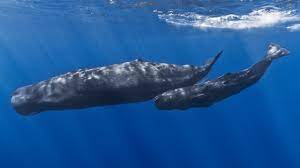Science News Roundup: North American lobster industry confronts 'ropeless' traps after whale entanglements; Scientists document how space travel messes with the human brain and more
Injuries to endangered North Atlantic Right Whales ensnared in fishing gear have fueled a prominent campaign by environmental groups to pressure the industry to adopt on-demand equipment that only suspends ropes in the water briefly before traps are pulled from the water. Scientists document how space travel messes with the human brain Space can be an unfriendly place for the human body, with microgravity conditions and other factors tampering with our physiology, from head to toe - head, of course, being a primary concern.

Following is a summary of current science news briefs.
Analysis-Boeing, Northrop face obstacles in commercializing flagship US rocket
NASA's plans to turn over its flagship rocket to contractors Boeing and Northrop Grumman to find more buyers and bring down costs faces steep hurdles thanks to meager demand even from the Pentagon and a sprawling supplier network. The U.S. space agency is pushing ahead with plans to hand ownership of the Space Launch System (SLS) to a Boeing-Northrup joint venture in the next few years, with a goal of cutting in half the rocket's price tag - estimated at $2 billion. But finding a market for a giant and costly rocket promises to be difficult, with the U.S. Department of Defense (DoD) - seen as a potential customer - signaling little interest.
North American lobster industry confronts 'ropeless' traps after whale entanglements
An emerging technology to fish for lobsters virtually ropeless to prevent whale entanglements is exciting conservationists, but getting a frigid reception from harvesters worried it will drive them out of business and upend their way of life. Injuries to endangered North Atlantic Right Whales ensnared in fishing gear have fueled a prominent campaign by environmental groups to pressure the industry to adopt on-demand equipment that only suspends ropes in the water briefly before traps are pulled from the water.
Scientists document how space travel messes with the human brain
Space can be an unfriendly place for the human body, with microgravity conditions and other factors tampering with our physiology, from head to toe - head, of course, being a primary concern. A new NASA-funded study provides a deeper understanding of the issue. Researchers said on Thursday that astronauts who traveled on the International Space Station (ISS) or NASA space shuttles on missions lasting at least six months experienced significant expansion of the cerebral ventricles - spaces in the middle of the brain containing cerebrospinal fluid.
(With inputs from agencies.)










